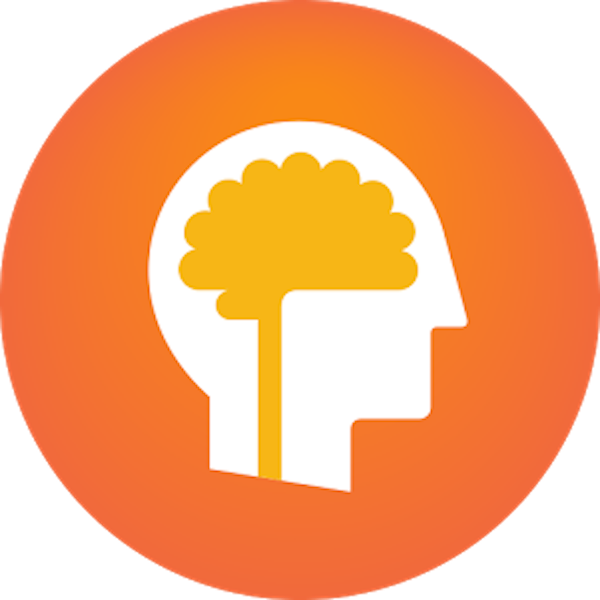The Allure (and Folly) of Brain Training
Can the various puzzles and quizzes associated with commercial brain-training games really improve cognitive function — or better yet, stave off cognitive decline? To date, the scientific evidence is murky, but that hasn’t kept companies from trying to cash-in on consumers’ native desire for quick fixes to complex health problems.
The most famous among such companies is probably Lumosity, a product of San Francisco-based Lumos Labs, which once marketed its suite of web-based games and mobile apps as being “built on proven neuroscience,” and by encouraging users to “harness your brain’s neuroplasticity and train your way to a brighter life.”

Exercising your brain with online brain-training games like Lumosity (above) or Smart Brain Aging sounds like a great idea, but the science is still murky.
Those claims were among several that attracted the attention of the Federal Trade Commission, which earlier this year filed a complaint against the company. Lumosity was ultimately slapped with $50 million in fines for deceiving consumers — although $48 million of that was reportedly suspended by a district court, because the company was financially unable to pay the full amount.
“Lumosity preyed on consumers’ fears about age-related cognitive decline, suggesting their games could stave off memory loss, dementia, and even Alzheimer’s disease,” said Jessica Rich, Director of the FTC’s Bureau of Consumer Protection, in a statement accompanying the settlement. “But Lumosity simply did not have the science to back up its ads.”
For its part, Lumos Labs representatives said in their own statement following the FTC dustup that they stood by their products — though they conceded that there was still much to learn on the effectiveness of the games. “We are at the forefront of a new and rapidly innovating field,” the company noted, “which means there is a lot we don’t yet know.”
That hasn’t stopped other companies from seeking to break into the “brain training” industry. One such firm, Smart Brain Aging, which markets brain games as well as a “cognitive rehabilitation program,” made headlines this month when it was awarded the hefty sum of $250,000 by the Arizona Innovation Challenge, a technology startup competition run by the Arizona Commerce Authority. “We’re the home gym for your memory,” the company touts on its website, adding that it delivers “research-supported programs, in-person and virtually, that reduce cognitive decline in aging brains.”
The company’s hefty prize raised eyebrows locally because its CEO is a former judge for the competition. But perhaps the bigger question is whether there’s actually any science behind the sort of claims that companies in this space seem all too eager to make. The consensus still seems to be no.
According to an open letter signed in late 2014 by nearly 70 researchers in psychology and neuroscience, “there is little evidence that playing brain games improves underlying broad cognitive abilities.” The research cited by brain-training companies, the scientists added, is often “only tangentially related to the scientific claims” made in the marketing of the games.
Cognitive decline as humans age, of course, isn’t fully understood. But there is no clear evidence that connects individual tasks, like recognizing patterns in a computerized memory game, with specific improvements in cognitive skills, like remembering what’s on your grocery list — at least not for a prolonged period of time.
“[T]here is little evidence that you can do something once (or even for a concentrated period) and be inoculated against the effects of aging in an enduring way,” the authors of the letter wrote. The effects of a specific task or game just haven’t been shown to last. And when a measurable cognitive benefit has been shown in past studies, it does not necessarily transfer and boost other mental skills.
“People got better at the tasks they practiced, but this did not transfer at all to other measures of cognition,” wrote Jeffrey Zacks, a professor of psychology and radiology at Washington University in St. Louis, in a summary of these studies for Aeon magazine.
The idea of a brain game that wards off cognitive decline is certainly alluring. You just log on for a few minutes a day and add clarity to your life. But that magic-bullet solution, which attracts aging baby boomers as surely as it does hungry tech-entrepreneurs, remains elusive. Generally speaking, there’s little long-term scientific evidence that these brain games work, regardless of the psychology and neuroscience rhetoric being used to market them.
“Sometimes the advertising tries to stay fairly close to the research and sometimes it doesn’t,” said Arthur Kramer, a professor of psychology and engineering and senior vice provost for research at Northeastern University, and one of the signatories of the 2014 letter. “Often there’s implicit suggestions that lives will be improved in general, but those aren’t the kinds of experiments we do in the lab.”
“These products focus on training memory, problem-solving and reasoning,” Kramer added. “But the reality is we don’t have a lot of data to determine which of these products are promising with regard to real-world skills and behaviors.”











Comments are automatically closed one year after article publication. Archived comments are below.
It’s not a single game that these companies sell. The repertoire consists of several. Some studies did show medium term effects. Encoding specificity certainly exists, but functional networks are complex. We don’t know which functional networks get exercised with various games.
So these negative reviews may not be quite right.